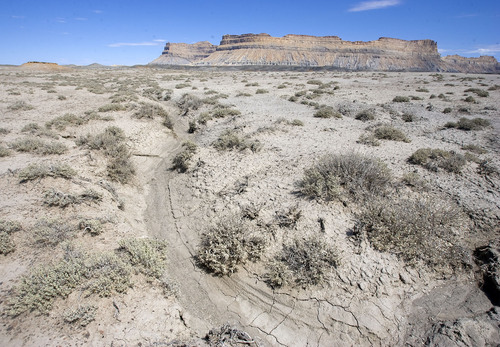This is an archived article that was published on sltrib.com in 2013, and information in the article may be outdated. It is provided only for personal research purposes and may not be reprinted.
Anybody who thinks it would be a good idea for the state of Utah to be able to make its own land use, water use and environmental decisions, without meddlesome federal bureaucrats getting involved, should be working to demonstrate that the decisions that would be made here would be at least as wise and measured as anything that would come from a Washington functionary.
By that measure, Utah's case for independence took a huge step backward the other day when a state judge could find no fault with a state bureaucrat's decision that would allow a significant amount of the state's precious, and dwindling, water supply to be used to cool a proposed nuclear power plant.
District Judge George Harmond Wednesday upheld the decision by state Water Engineer Kent Jones, allowing the outfit called Blue Castle Holdings to buy water rights now held by the San Juan and Kane county water conservation districts.
The 53,000 acre-feet of river water a year is for the nuclear reactor envisioned for a spot in southeast Utah, on the Green River near I-70.
A consortium of environmental groups filed suit against the water rights transfer, arguing that it had the potential to do serious damage to the Green River's fragile ecosystem. The state engineer's decision, upheld by the judge, boiled down to a shrug.
That's what happens when the state law that guides both officials makes no provision for weighing the environmental impact of water rights decisions. All those who want to transfer such rights have to show is that they have a use for the water that, maybe, possibly, might pencil out economically.
Neither the engineer nor the judge could find firm proof that the Green River Plant wouldn't fly financially. So they couldn't bring themselves to stop it.
If the plant is to be stopped, as it almost certainly should be, it will now be up to the feds. The question mostly falls to the Nuclear Regulatory Agency, required by federal law to apply the very environmental and wildlife concerns that state officials pointedly ignore.
In the overall scheme of things, all that might be for the best. To win the required federal permits, the plant's worthiness will be judged, not just on the basis of its economic feasibility, but also on its environmental impact.
It will just be so judged by people who don't live in Utah. A state of affairs that is entirely the fault of people who do.



